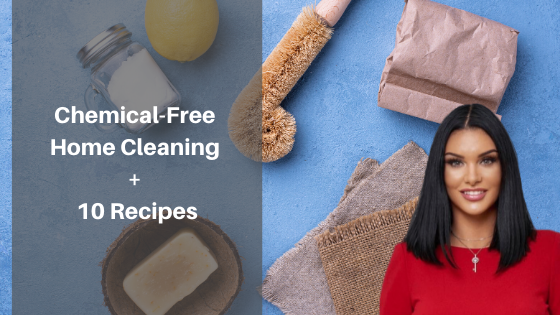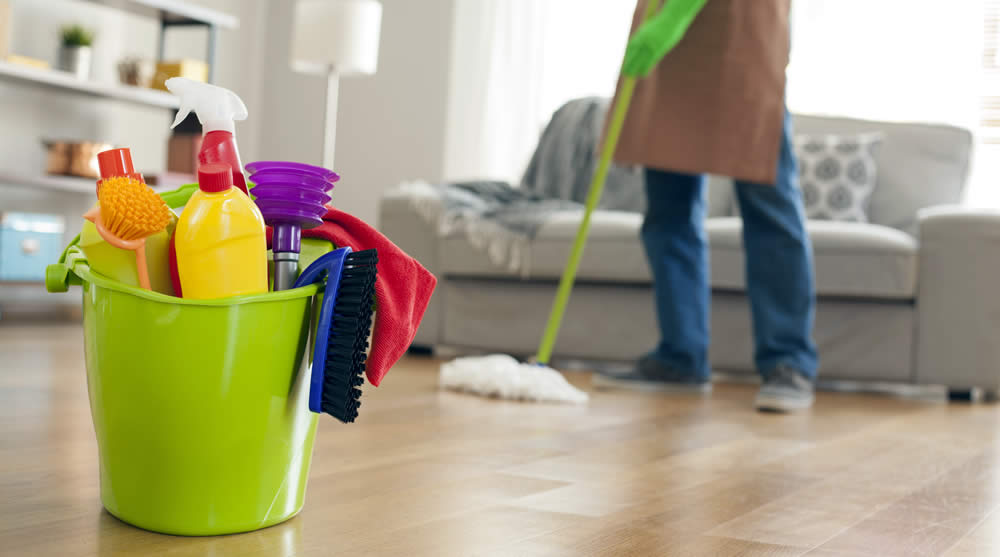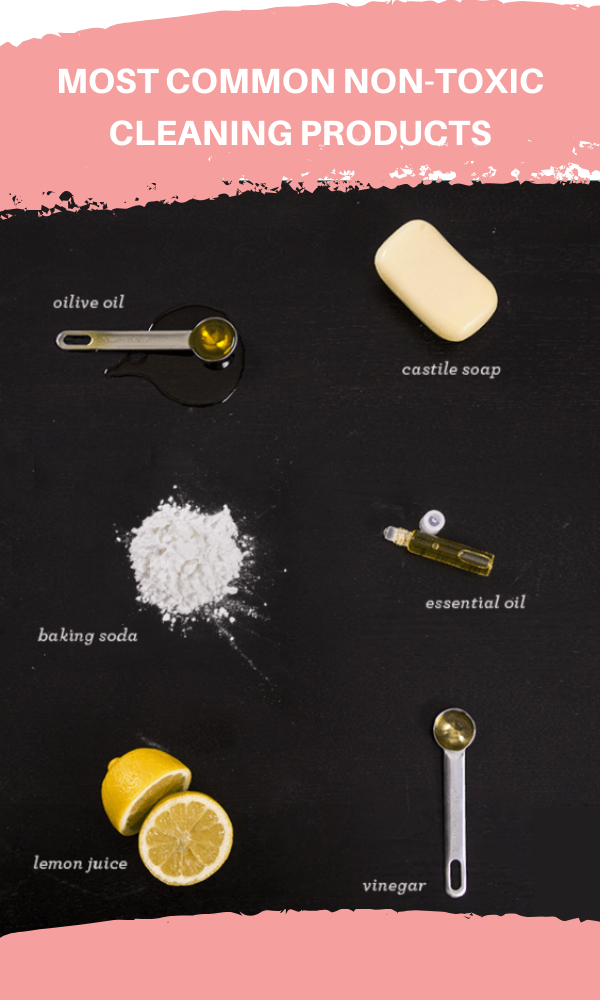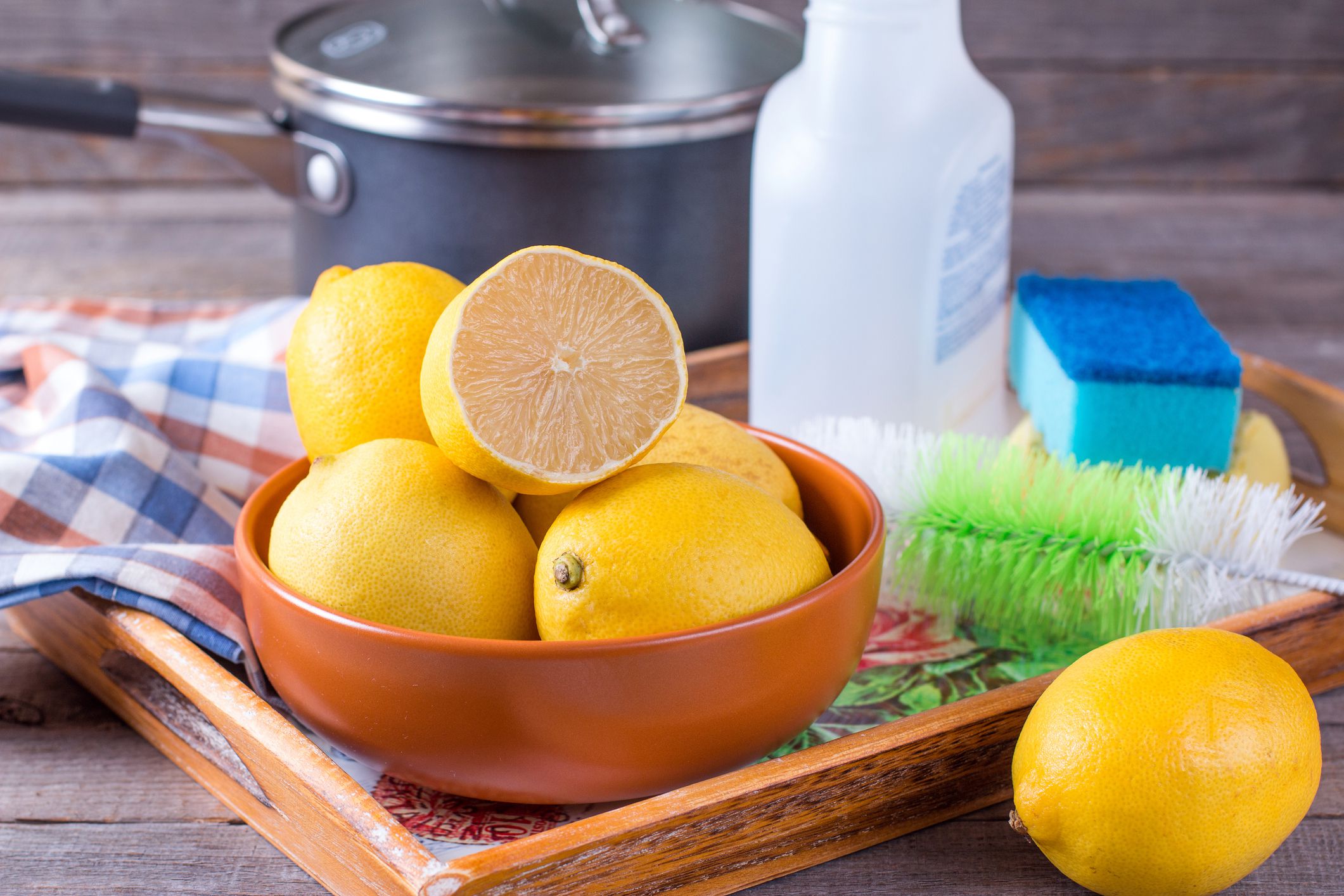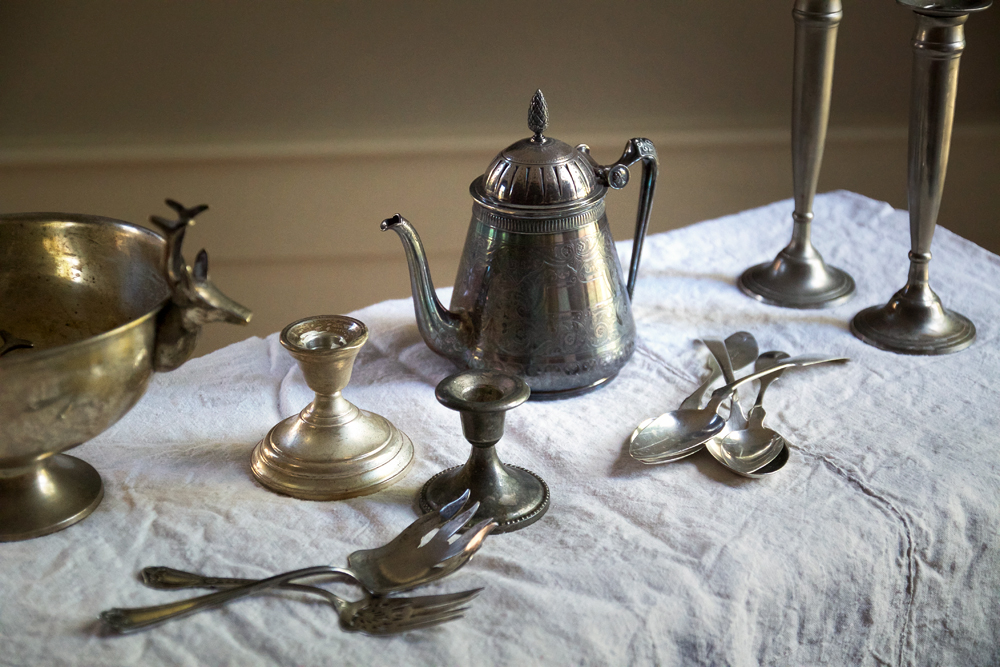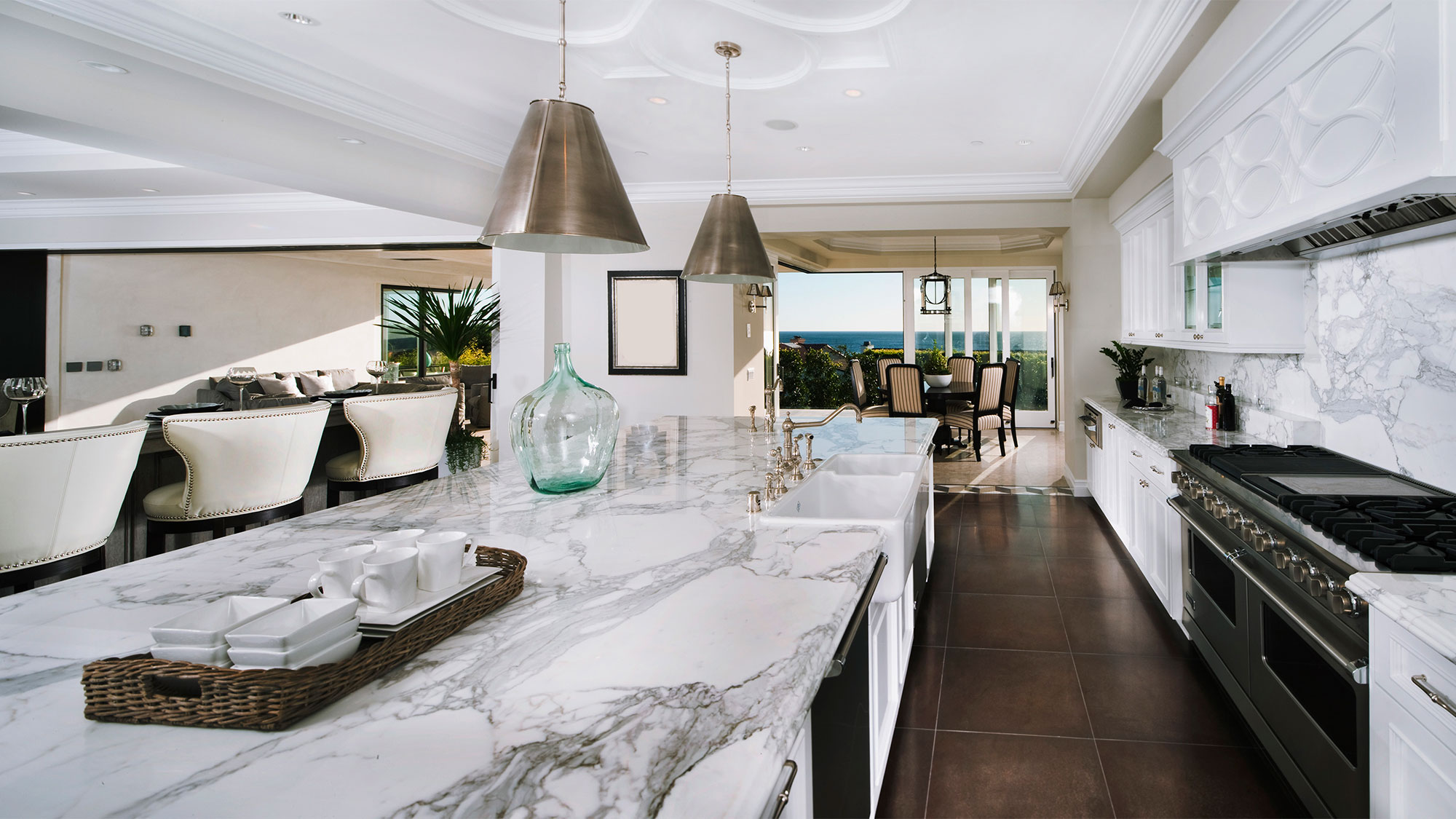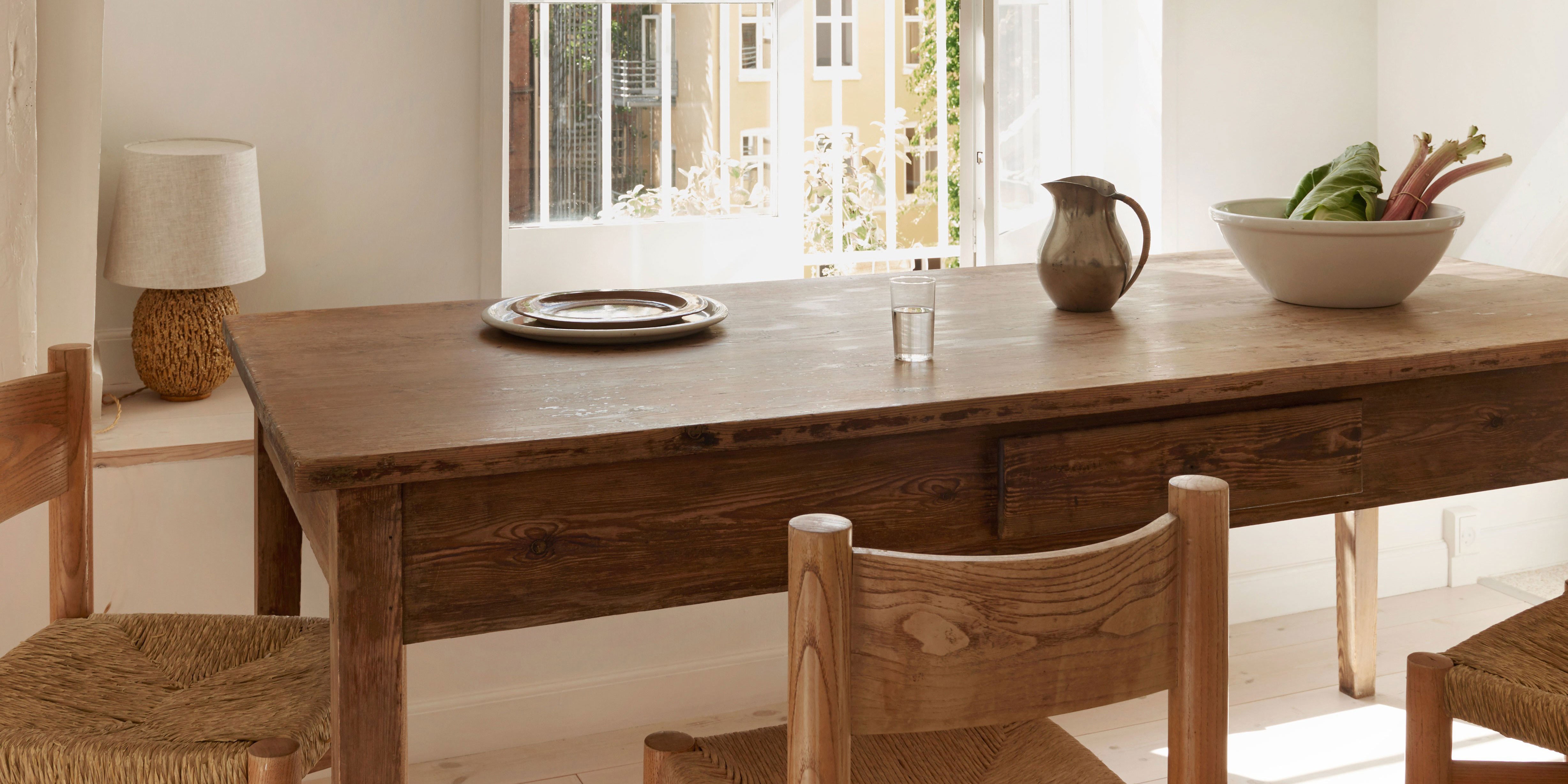We’ve all been working hard to reduce the amount of single-use plastics we use in our home cleaning routine, swapping plastic spray bottles for refillable glass options and ditching regular sponges for washable ones instead. But packaging aside, when it comes to your weekly scrub, have you considered the environmental impact of the cleaning chemicals themselves?
When it comes to cleaning products, natural alternatives have only just begun to gain mainstream popularity. For a long time many of us didn’t question the need for chemicals in our cleaning solutions, and they seemed like the only option to ensure good hygiene.
But people have been cleaning their homes since long before we normalised the use of toxic chemicals, and once you start to think about it, it seems contradictory to be using hazardous ingredients to try to make our homes safer.
Many of the products which are commonly used contain incredibly harsh chemicals which are dangerous if ingested, touched or even breathed in.
Many of these chemicals are not only potentially dangerous to us but can also end up in our waterways, becoming extremely damaging to the environment.
Luckily, chemical-laden cleaning products aren’t the only means to keep a home sparkly. Non-toxic homemade cleaning products aren’t only better for us; they can also help save us money and protect the environment.
Making your own products cuts down on packaging waste and reduces the release of household chemicals that can contribute to air and water pollution. The best news? The majority of the most powerful cleaning products may well already be on our pantry shelves.
1. Scented All-Purpose Cleaner
What you’ll need:
-
One part white vinegar
-
One part water
-
Lemon rind
-
Rosemary sprigs
Combine the above ingredients together, pour into a spray bottle, shake, and then let infuse for a week before using. Once done, you can use the natural solution to remove hard water stains, clean trash cans, wipe away wall smudges, and much more. Besides a fresh scent, the lemon rind may help boost cleaning power.
Caution: Do not use acidic cleaners on granite, as they will etch the stone.
2. Kitchen Cleaner and Deodorizer
What you’ll need:
-
4 tablespoons baking soda
-
1 quart warm water
To clean kitchen counters, appliances, and the inside of your refrigerator, all you need is baking soda. “It makes a great deodorizer and can be used to shine stainless steel sinks and appliances,” says Carolyn Forte, director of the Good Housekeeping Institute Cleaning Lab. To deodorize surfaces, use the solution above or pour baking soda straight from the box and into your drain or garbage disposal to remove odors. To shine and remove spots from stainless steel, make a paste of baking soda and water. Apply it with a damp cloth and rub gently in the direction of the metal’s grain. Rinse and buff dry.
3. DIY Glass Cleaner
What you’ll need:
-
2 cups water
-
1/2 cup white or cider vinegar
-
1/4 cup rubbing alcohol 70% concentration
-
1 to 2 drops of orange essential oil for smell (optional)
The next time you need to wash your windows and mirrors, combine these ingredients and pour them in a spray bottle. Hint: Don’t clean windows on a hot, sunny day, because the solution will dry too quickly and leave lots of streaks. For mirrors, spray the solution on a paper towel or soft cloth first before wiping.
4. Homemade Brass Cleaner
-
White vinegar or lemon juice
-
Table salt
To clean non-lacquered cabinet pulls, bathroom appointments, and more, dampen a sponge with vinegar or lemon juice, then sprinkle on salt. Lightly rub over surface. Rinse thoroughly with water, then immediately dry with a clean soft cloth.
5. Natural Heavy-Duty Scrub
What you’ll need:
-
1/2 lemon
-
1/2 cup borax powder
Rust stains on porcelain or enamel sinks and tubs are no match for this cleaner. Dip the lemon into the borax and scrub the surface, then rinse. (This is not safe for marble or granite.) Tip: You can find borax, a laundry booster, in the detergent aisle or order it on Amazon.
6. Natural Marble Cleaner
What you’ll need:
-
2 drops mild dishwashing liquid
-
2 cups warm water
Mix dishwashing detergent and water the next time you want to clean natural stone countertops. Sponge over marble and rinse completely to remove any soap residue. Buff with a soft cloth; do not let the marble air-dry. Caution: Never use vinegar, lemon, or any other acidic cleaner on marble or granite surfaces; it will eat into the stone.
7. Clothing Stain Remover
What you’ll need:
-
1.5 gallon hot water.
-
A cup powdered dishwasher detergent.
-
1 cup regular liquid chlorine bleach, not ultra or concentrate.
Treat badly stained but washable white clothing by mixing the above ingredients into a stainless steel, plastic, or enamel bowl (not aluminum). Soak garment for 15-20 minutes. If stain is still there, let it soak a bit longer, then wash the item as usual.
8. Furniture polish
What you’ll need:
-
¼ cup olive oil
-
10 drops of orange essential oil
Simply mix the two ingredients and dip a cleaning cloth into the mixture before applying a small amount onto the desired surface. And gently rub it in, and it will remove stains and dust in addition to protecting and leaving a polished look.
9. Natural Perfume for the house
What you’ll need:
-
60 millilitres of hot water
-
60 millilitres of vodka or gin
-
20 to 30 drops of an essential oil
There’s a variety of perfume diffusers that you can buy at the store, but they are often bad for your health. The smoke that results from burning these fragrances releases phthalates, formaldehyde and acrolein. So for a homemade perfume, you can either spray this recipe or – for a more effective result – pour it into a decorative ceramic or glass jar, add reed diffusers and soak the tips for about 3 hours before flipping the sticks.
10. Wood Cleaner
What you’ll need:
-
2 cups water
-
1/2 cup white distilled vinegar
-
1/2 cup olive oil
-
20 drops favorite essential oil (I used lemongrass flavor)
Mix all the ingredients in your spray bottle. Shake each time before you spray on a surface and Wipe the surface with a rag.


